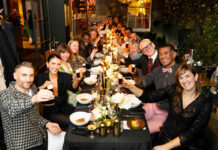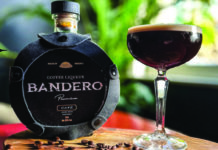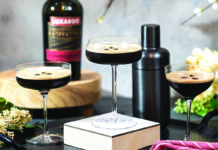A strong hot beverages offer can pay dividends for trade
Scotland’s pubs and bars are nothing if not versatile – capable of adapting and reacting to ever-changing consumer demands.

And so, as more people look to pubs for non-alcoholic alternatives – especially during the day – hot beverage suppliers say the operators who get their offer right can reap the rewards in this lucrative market.
The three hot beverage staples are tea, coffee, and hot chocolate. Tea is the most popular of these, with more than 165 million cups consumed daily in the UK – more than twice the number of cups of coffee, according to Allan Pirret, sales director of Novus Tea.
Despite the obvious popularity of tea, Pirret said it is an “untapped” market, in the sense that it “can be exploited more easily than coffee”.
“Premium tea has an increasingly cool image, which is great news for the pub and bar sector,” he said.
“Young people aged 25 to 34 are the biggest users of whole leaf teas – this group is driving the fast-growing sector which is set to double in size over the next ten years.
“Operators need to get their offering right by serving a tea experience on a par with the very best artisan coffee.
“Many publicans are guilty of not investing sufficiently in their hot beverage equipment. When serving tea, it’s a good idea to present the teapot to your customers with a tea timer alongside – this ensures the tea is always brewed to perfection.”
The importance of quality – both in terms of the hot beverage itself and the presentation of the drink – was underlined by Andrew Jack, head of marketing at Matthew Algie, which was acquired by German coffee and foodservice business Tchibo last month.
Consumers are looking for more variety in the coffees offered.
According to Jack, consumers have become “more discerning and are demanding higher quality coffee from the on-trade”.
“They are also looking for more variety in the coffees offered and an added value experience – something they cannot get at home,” he said.
“It is therefore important for operators to take advantage of this trend by offering barista-made coffees and widening the choice of blends and strengths to suit different palates.”
Beyond a core range, offering a selection of limited edition seasonal drinks is important, according to Jack, who said winter is a “key selling period” for hot beverages.
But he said visibility is vital if licensees are to really reap the rewards.
Operators should ensure their hot beverages offer is listed in the drinks menu, and that coffee equipment is visible on the bar.
Equipment and ingredients are, however, just part of the hot beverages story.
Premium tea has an increasingly cool image.
“To get it right every time takes a barista’s skill, knowledge and passion,” said Jack at Matthew Algie.
“Equipment also requires knowledgeable staff to ensure it is utilised effectively. It is therefore important that staff are well-trained in machine maintenance and know how to clean the machines properly as this impacts on beverage quality.
“Publicans with an already established hot beverage offering should never underestimate the importance of staff training as this will ensure staff are producing high quality cups of coffee every time.
“In today’s competitive market, with ever-increasing consumer expectation, operators simply cannot afford to offer bad or mediocre coffee. Customers expect the best and will know when it is anything less.”
The importance of knowledgeable, well-trained staff to hot beverage sales was underlined by Pirret at Novus Tea, who said operators who offer a “tea experience on a par with the very best artisan coffee” stand to benefit.
“To help you promote your hot beverages, you’ll need to make sure your staff are knowledgeable and enthusiastic about your tea range,” he said.
“In the same way as a barista would know their coffee, in order to effectively up-sell and premiumise your tea offering your staff need to understand origin, appreciate the different tastes and value the correct serving methods.”























